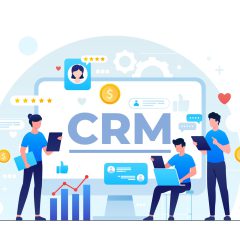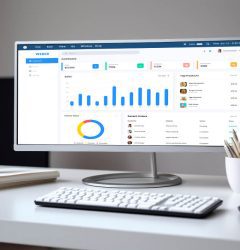Ready-Made or Custom-Built CRM Software: How to Make the Right Choice?
- By ERM Akademi
09 Jun

Managing customer relationships is a key driver of business growth and long-term success. This is where CRM (Customer Relationship Management) software comes into play. CRM solutions not only help track customer data, but also boost sales, enhance customer satisfaction, and streamline marketing operations.
Choosing the right CRM solution is a critical decision for any business. One of the biggest questions companies face is: Should we purchase an off-the-shelf CRM or build a custom one from scratch? This decision can shape your competitive edge and fuel your business growth. The right choice depends on your company’s specific needs, internal dynamics, and available resources.
Doing the right job the right way is essential. Investing in the wrong solution can complicate your operations and lead you away from your business goals. That’s why every strategic decision must be taken with care.
In this article, we compare two key options: buying a ready-made CRM or developing a custom CRM tailored to your needs. We also explore whether businesses should use in-house development teams or outsource their CRM development. This comparative analysis is designed to help you choose the most suitable CRM path for your organization. Let’s dive into the comparison.

Overall Costs
One of the most common mistakes decision-makers make during the comparison process is related to cost. There’s often a tendency to believe that developing a custom CRM software will be more cost-effective in the long run. However, the time costs of all employees and senior managers involved in the CRM software development process are frequently overlooked. Additionally, the costs of bug fixes, improvements, research, learning, and testing during development are often not factored into the equation. Many businesses also fail to fully consider the value, solutions, and features that off-the-shelf CRM software can provide when making their comparisons.
Unit Costs
From a simple business perspective, the more a ready-made CRM software is sold, the lower its unit cost becomes. This gives CRM software providers the opportunity to offer more competitive pricing. In contrast, a custom-built CRM software with no commercial resale potential typically lacks this kind of cost advantage. Moreover, off-the-shelf CRM software vendors can spread one-time development costs—such as training materials and instructional videos—across thousands of customers. Companies that develop their own software cannot benefit from this kind of scale economy for their training efforts.
Developer Capabilities
Business leaders sometimes make the mistake of assuming their in-house developers are a lower-cost alternative. However, research by McKinsey shows that highly skilled developers can deliver up to eight times more value than average ones. Trying to build a complex software system using limited technical expertise may lead to either a poor-quality product or unexpectedly high overall costs. What seems cheap at first often turns out to be more expensive in the end.
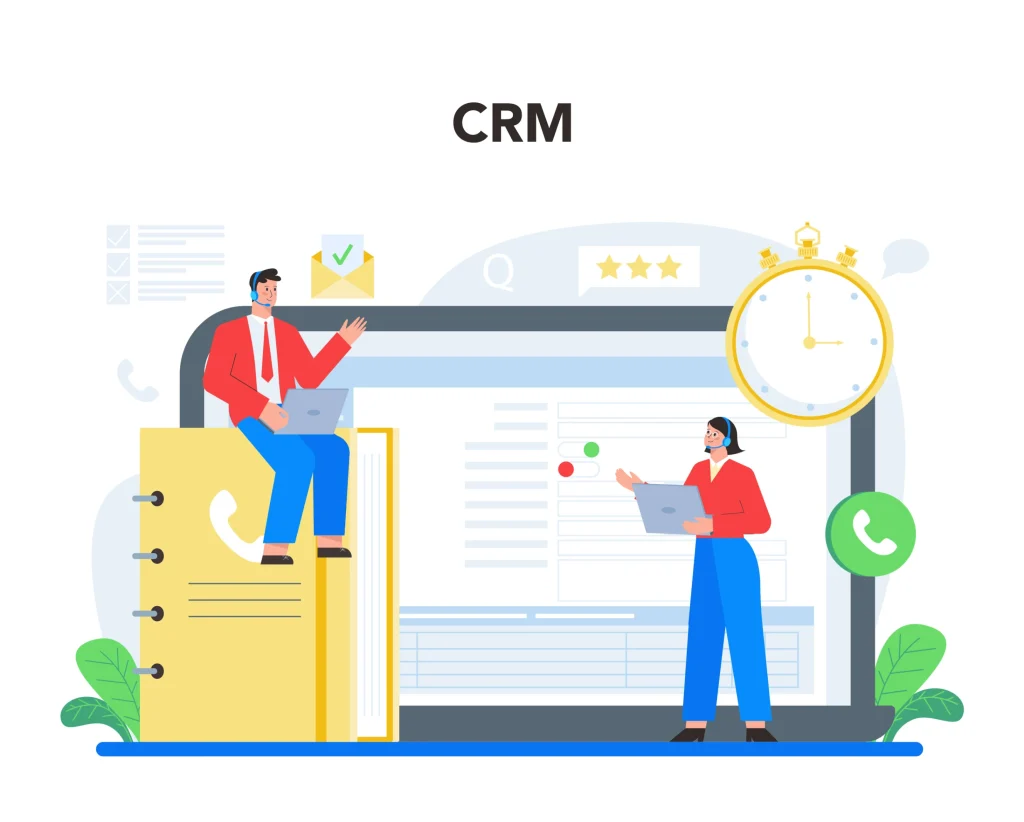
Fast Implementation
One of the biggest advantages of purchasing ready-to-use CRM software is the ability to get started quickly. If your business needs are relatively standard and you don’t require complex integrations or heavy customizations, you can begin using the software almost immediately. In many cases, adapting an off-the-shelf CRM software to your operations may only take a few weeks. On the other hand, choosing to develop custom CRM software from scratch typically involves a timeline of at least six months—from requirements analysis and development to testing and deployment. If you’re planning a more comprehensive CRM system, the development period could stretch anywhere from 2 to 4 years, depending on the scale of the project.
Time Pressure and Loss of Focus
Your sales, marketing, and customer support teams may be eager for new features and expect quick results. Meeting these demands could require allocating additional resources, which may lead your company to shift focus away from its core products or services. Can your business afford to manage such a shift in priorities and resource allocation? Many companies that take on the challenge of building their own CRM software risk losing focus on their primary business while managing this large-scale project.
Customization and Flexibility
One of the main reasons companies consider developing their own CRM software is the desire for a solution that is highly tailored, flexible, and aligned with their unique workflows. Off-the-shelf CRM software is typically designed to meet the standard needs of a wide market, often based on industry best practices. However, each company has its own specific requirements, and pre-built software may not always address these needs completely. This drives some businesses to pursue custom development in search of a CRM that fits like a glove.
Still, there are some critical considerations before taking this path. First, building a CRM software from scratch doesn’t necessarily mean it can be successfully built from scratch—only a limited number of companies manage this complex process effectively. Second, company leaders may assume their business processes are too unique without thoroughly analyzing the flexibility and configurability of existing CRM platforms. In reality, most companies share far more common practices than they have unique differences.
Moreover, before deciding to build a custom CRM, several key questions should be answered—questions that center around benefits, costs, and prioritization:
How many of your business needs are already met by existing CRM software?
How critical are the unmet needs, and can they be solved through alternative methods?
Is there a possibility to enhance or extend the off-the-shelf CRM software to cover those critical gaps?
Does the cost and risk of custom development truly outweigh the limitations of the available CRM software—and is this cost-benefit-risk analysis being done objectively?
Does your company have the human, financial, and time resources required to develop CRM software?
What is your company’s ability to successfully manage and deliver large-scale software projects?
If the answers to these questions support the idea of building a custom CRM software, then it may indeed be the right path. After all, the purpose of a CRM system is to drive meaningful, value-added business outcomes.
That said, it’s worth noting that most modern off-the-shelf CRM software comes with powerful platforms that offer a high degree of customization. These platforms often allow you to tailor data fields, workflows, reports, and user interfaces to your needs. Additionally, many industry-specific CRM options are available on the market.
For this reason, before deciding to build a CRM system purely for the sake of customization, businesses should first evaluate different ready-made CRM software options, engage with vendors, and request live demos. These interactions will help clarify how best to address your CRM needs. In many cases, around 80% of your requirements can be met—or at least closely addressed—through configuration. What remains is the final 20%, and it’s crucial to evaluate whether the cost and risk of covering that remaining gap is truly worth it.
Sustainability and Ongoing Support
When choosing between purchasing or building your CRM software, one of the key factors to consider is the long-term sustainability and support costs. You’ll need a team or resources to handle software updates, bug fixes, user support, and other technical issues. Ensuring that your CRM software continues to function efficiently and aligns with your business needs over time depends heavily on this ongoing support.
Continuous maintenance and support are vital for any CRM software. Vendors of ready-made CRM solutions usually specialize in software development and support as their core business, which means they often have the experience and infrastructure to provide strong and sustainable service. However, relying on third-party vendors also comes with risks—such as company bankruptcy, declining service quality, or the discontinuation of the product. That’s why it’s crucial to evaluate a vendor’s reputation, financial stability, and customer service performance before committing.
If you decide to develop your own CRM software, you’ll face a different set of risks. Developers may leave the company, making it difficult for new team members to understand and manage the existing codebase. Maintaining the software’s integrity may require significant effort over time. Even if you start with a capable developer, challenges can arise when updates are needed or team changes occur. Building a CRM system is not just about writing the initial code—it also includes implementation, user training, maintenance, and continuous updates.
It’s important to note that the costs of using ready-made CRM software go beyond just annual license fees or subscription charges. Hidden costs—such as the time your team spends on maintenance, support, and future enhancements—can add up. There’s also the opportunity cost of diverting attention and resources away from core business functions and sales growth.
For these reasons, when evaluating the sustainability and support requirements of a CRM solution, you should consider all these factors holistically. A well-supported CRM software should not only meet your current needs but also evolve with your business in the long term without draining your focus and resources.
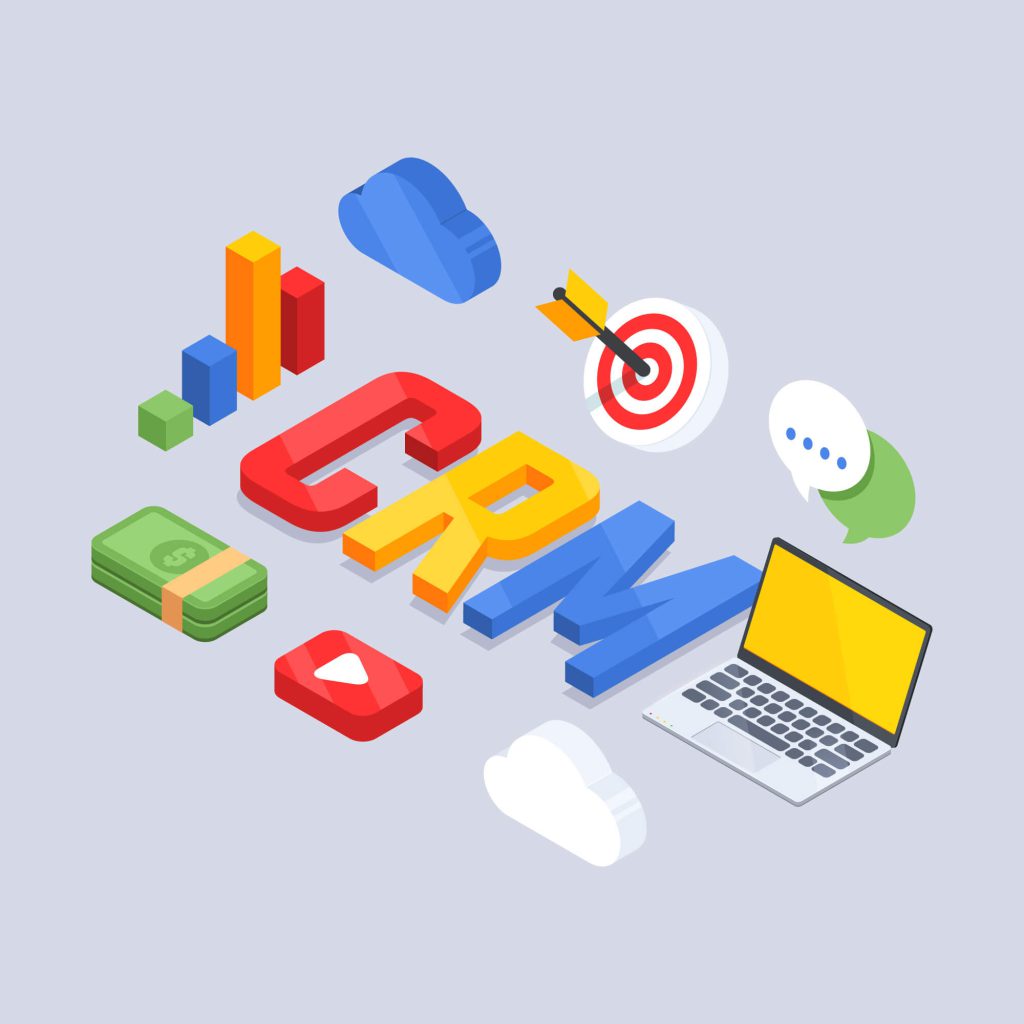
Motivation for Control and Avoiding Vendor Lock-in
For some companies, the decision to develop their own CRM software stems from a desire to avoid the potential financial and psychological costs of post-sales support and long-term dependency on an external vendor. These businesses seek full control over their software and aim to minimize the risks associated with relying on a third-party provider. Past experiences with underperforming software vendors can make it difficult to rebuild trust. Many companies realize that the control they hold during the purchase phase often shifts in favor of the vendor once the CRM system is implemented, integrated, and adopted by end users. At that point, the customer becomes dependent on the system and may be forced to accept unexpected maintenance, support, development, or additional licensing costs. This dependency can eventually become unsustainable, prompting some companies to build a customized CRM solution to regain control.
It’s also important to note that this issue isn’t unique to CRM software—any enterprise software investment carries similar risks. Key questions companies often ask themselves include:
What if our future business needs outgrow the capabilities of the current CRM system?
What happens if pricing suddenly changes and we’re unprepared?
Will the CRM provider continue to improve the product and deliver strong customer support?
Will our internal team adopt the system and receive the right training to maximize its value?
Will the benefits truly justify the costs?
To mitigate these risks, businesses can take several steps:
Carefully assess CRM requirements before making a decision
Conduct thorough vendor research and due diligence
Evaluate the software’s features and the vendor’s business practices holistically
Consider the vendor’s industry experience and long-term product commitment
Seek and verify customer references
Request a live demo
Investigate the frequency and quality of product updates
Demand transparency in pricing and include clear terms in the contract
Scalability
One potential advantage of building a custom CRM system is the ability to fully align it with your business’s future growth and expansion goals. You can scale and tailor your CRM platform in line with your unique processes, which can be a strong benefit when addressing evolving needs over time. However, to turn this potential into real value, careful planning during the development phase is essential. The software must be designed to accommodate future scalability, or the theoretical benefits may never materialize in practice.
That said, many ready-made CRM solutions are also scalable. They’re often built to serve businesses of various sizes and can quickly adapt to changing needs—such as adding users or enabling new features—thanks to their proven, field-tested infrastructures. When developing a CRM system from scratch, ensuring that it will scale with your business as it grows becomes your responsibility.
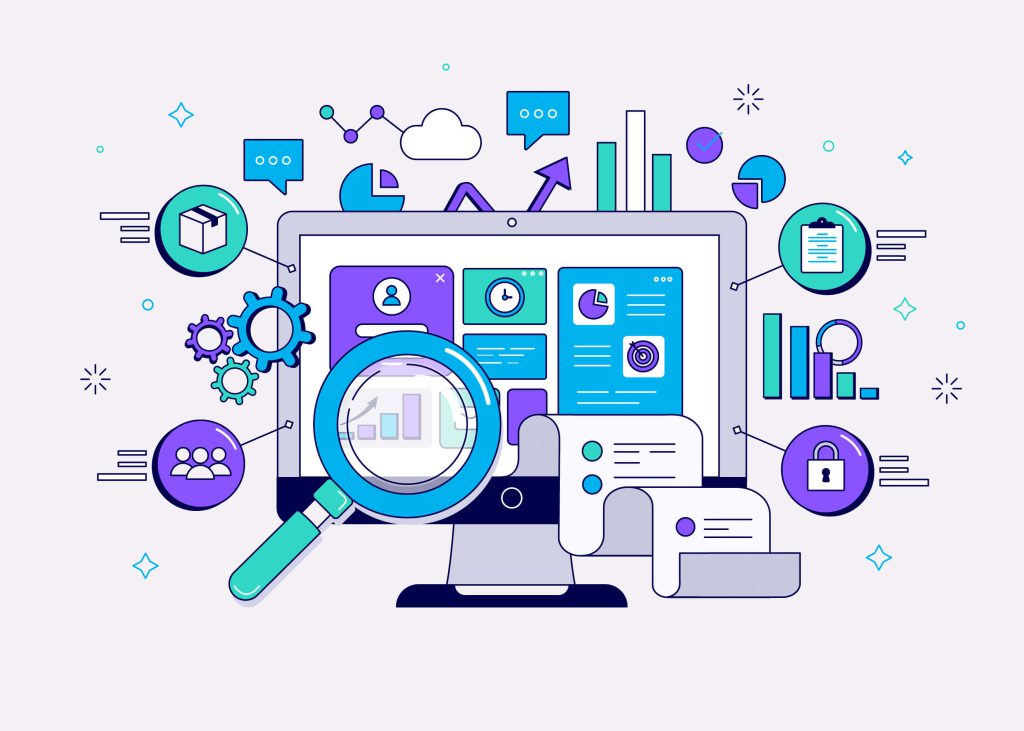
Stability and Security
Off-the-shelf CRM platforms are typically built by experienced developers and rigorously tested for security vulnerabilities and performance issues, making them more robust and reliable. These systems have evolved by addressing thousands of real-world use cases, continuously improving their security frameworks and performance metrics. In contrast, developing a CRM system from scratch requires additional time and effort to reach a similar level of maturity and resilience. Achieving comparable security standards without years of accumulated expertise can be a significant challenge.
Data Security and Privacy
Companies that handle sensitive customer data or aim to maintain strict confidentiality over their business operations often approach off-the-shelf or cloud-based CRM solutions with caution. The desire to have full control over customer and business data can lead these organizations toward on-premise systems or fully custom-developed CRM software.
However, building and hosting your own CRM software doesn’t automatically eliminate security or privacy risks. In fact, high-quality cloud-based CRM providers are often better equipped to handle cybersecurity threats, offering stronger protection due to their dedicated infrastructure and expertise. For internal IT teams, managing such threats can be far more complex and resource-intensive.
Depending on the sensitivity of your customer data—such as banking or healthcare information—it is also possible to establish stricter confidentiality agreements with CRM vendors. Access to critical customer data during support and maintenance processes can be limited through controlled permissions. In today’s technological landscape, companies can implement robust data protection measures without necessarily building a CRM system from scratch.
Technical Expertise
Developing a CRM solution requires in-depth knowledge of CRM processes, strong technical skills, and access to experienced specialists. Your development team must be proficient in programming languages, databases, security protocols, and other core technologies. Just as important, building a successful CRM platform demands a deep understanding of business workflows and years of practical experience. Without a clear and compelling reason, attempting to build a CRM system from the ground up can be as challenging as reinventing the wheel.
Feature-Rich Functionality
Off-the-shelf CRM systems come packed with a wide range of built-in features. They typically include tools for customer data management, service operations, core business workflows, sales and marketing automation, reporting, and analytics. Many also offer seamless integration with commonly used business applications. These functionalities are delivered in a unified platform where all tools work together in harmony. The breadth and maturity of these features are the result of continuous development tailored to companies of various sizes and industries. For a business considering developing its own CRM software, reaching the same level of sophistication would require equivalent expertise and resources—something that can be especially challenging for small and medium-sized enterprises.
User Interfaces
Top-tier CRM platforms benefit from years of user feedback, trial-and-error cycles, and continuous refinement. Their user interfaces are not only aesthetically pleasing but also designed with usability in mind, significantly increasing user adoption and productivity. These polished experiences are often a major part of the value you receive from a ready-made solution. On the other hand, if you opt to develop a custom CRM system in-house, you may have to go through your own time-consuming learning curve to create an interface that meets the same standards of quality and user satisfaction.
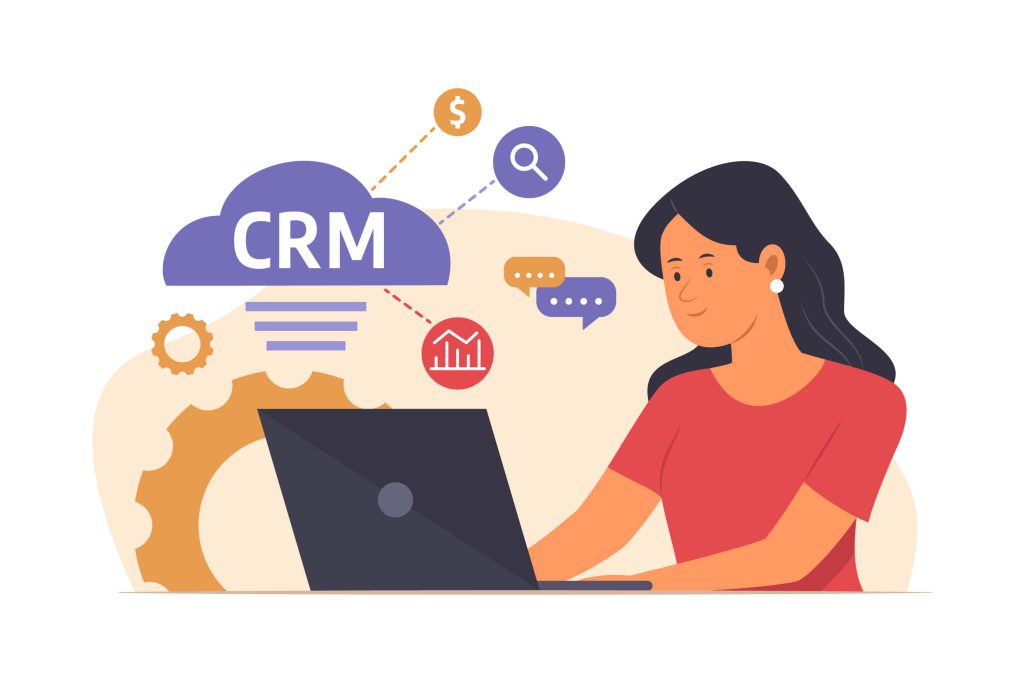
Evaluation and Recommendations
Both buying and building CRM software come with their own set of risks and advantages. However, one often overlooked aspect—especially in organizations with internal software teams—is the risk of not evaluating internal motivations objectively. IT managers may, consciously or unconsciously, steer executives toward building software from scratch in an effort to demonstrate their capabilities, enhance departmental significance, or meet personal career goals. This can lead to decisions that may not align with the company’s best interests.
When assessing the value of a CRM system, it’s essential to consider not only how it solves long-term operational challenges but also how well it aligns with your business growth objectives. Will developing your own CRM system truly deliver maximum long-term value? How will you measure the value of your CRM solution while accounting for all associated costs, risks, and strategic goals? Whether you choose to build or buy, the decision can have a lasting impact on your business. That’s why it’s critical to approach this choice with careful thought, thorough research, and a focus on long-term success.
Our Recommendation
Start by answering these key questions:
Do off-the-shelf CRM solutions fall short in meeting the majority of your business needs or lack the flexibility you require?
Is the CRM system mission-critical to your business operations?
Do you need to integrate multiple technology systems with your CRM, and existing CRM platforms do not support these integrations?
Are you in a highly regulated industry, and off-the-shelf CRM solutions cannot accommodate your compliance needs?
Do you have the necessary internal resources to manage a CRM project, including time, skilled personnel, advanced IT infrastructure, financial resources, budget, strong executive support, extensive business knowledge in CRM, and experience in managing complex projects?
If you answered YES to all of these questions, developing a custom CRM solution from the ground up might be the most logical path.
That said, developing and maintaining a robust CRM platform is not a task that can be achieved simply by hiring a few developers. Building a high-quality CRM system is a complex and demanding endeavor. For this reason, off-the-shelf CRM solutions are generally a more practical choice for small and mid-sized businesses, offering faster deployment, lower risk, and more predictable outcomes.
Our expert is ready, Are you ready to explore ERM CRM?
See our all-in-one CRM solutions at work.
These might interest you.
Last Articles
Categories
- CRM Business (3)
- CRM Programı (1)
- CRM Software (5)
- Most Read (3)
Archives
- October 2025 (1)
- June 2025 (4)
- May 2025 (1)

